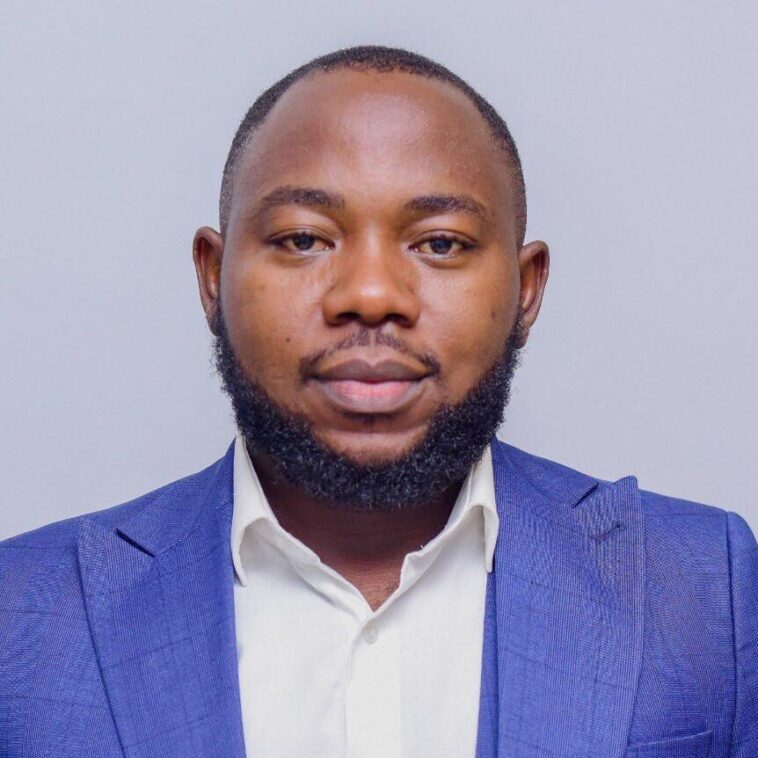Postpartum Depression in Nigeria
Breaking the Silence: Understanding Postpartum Depression in Nigeria
Postpartum Depression in Nigeria remains a hidden crisis, often misconceived and underestimated, despite its profound impact on mothers and families.
Breaking the Silence: Postpartum Depression in Nigeria
Postpartum Depression in Nigeria: A Hidden Crisis Unveiled
The joy of motherhood is often portrayed as a time of immense happiness, but for many Nigerian nursing mothers, it can be marked by an invisible struggle – Postpartum Depression (PPD). The story of Rabi Fakorede, who slipped into an emotional crisis after the birth of her first child, mirrors the experiences of countless women across the nation.
In the bustling city of Ibadan, Oyo State, Rabi Fakorede's world was suddenly clouded by sleepless nights and overwhelming feelings of frustration and helplessness. Just eight days after giving birth, she was rushed to a local hospital, her relatives in shock at the dramatic shift in her demeanor. It was at that hospital that Rabi received a diagnosis that would change her life forever – Postpartum Depression.
PPD, often referred to as postnatal depression, is a form of clinical depression that can strike women after childbirth. Characterized by persistent feelings of sadness, hopelessness, and emotional distress, PPD can cast a long shadow over a new mother's ability to care for both herself and her baby. While it typically emerges within the first few weeks or months following childbirth, PPD can develop during pregnancy or even up to a year after giving birth.
The symptoms of PPD are diverse, ranging from persistent sadness and the inability to find pleasure in once-beloved activities to fatigue, poor concentration, and sleep disturbances. The emotional toll extends to changes in appetite, a sense of detachment from the baby or partner, and even distressing thoughts of self-harm or harming the baby.
Yet, despite the potential severity of PPD, there's a startling lack of precise data on its prevalence in Nigeria. Globally, PPD remains a common yet often overlooked complication of childbirth, affecting approximately 10-15 percent of new mothers, while also casting a shadow over fathers and partners.
Digging deeper into this issue, it's crucial to acknowledge that PPD is not limited to mothers alone. Esther Olowokere, a psychiatric nurse, reminds us that PPD can affect both fathers and mothers. Research indicates that African-American and Hispanic women face a higher risk compared to their white counterparts. PPD doesn't discriminate; it can emerge within weeks postpartum or even manifest earlier during pregnancy, lingering for up to a year.
One might assume that with such prevalence, PPD would receive due recognition and treatment. Sadly, this isn't the case in Nigeria, where stigma and misunderstanding often lead to inadequate medical intervention. Many still view PPD as a spiritual ailment or severe mental disorder, perpetuating silence and suffering.
Rabi Fakorede's fortune was her diagnosis and subsequent treatment, but countless women in Nigeria are not as lucky. Take, for instance, the tragic story of Aisha Ali, who, in a desperate attempt to find relief, resorted to self-immolation, resulting in her untimely death. A year later, Aisha's family still grieves and wishes they had known more about PPD and its treatment options.
Addressing PPD isn't a one-size-fits-all solution. Esther Olowokere, the psychiatrist, emphasizes the need for professional counseling, antidepressants or hormone therapy, and a robust family support system. Financial support, cognitive behavioral therapy, psychoeducational sessions, psychotherapy, and medications also play pivotal roles in the recovery process. Awareness campaigns through print, electronic, and social media are instrumental in helping families recognize the signs of PPD.
While there isn't a definitive profile for how a woman with PPD may behave, Lucy Nwachukwu's experience serves as a distressing example. Her battle with PPD led her to contemplate harming her own baby, a shocking revelation for her husband, Mr. Nwachukwu, who had never encountered such a situation. The support of family and medical professionals was the lifeline that led Mrs. Nwachukwu out of the depths of PPD.
Challenges abound when it comes to accessing care for PPD. Unfortunately, many Nigerian women suffer in silence because treatment is primarily available in tertiary or specialized healthcare centers. Hassana Musa, a community health officer at the MDG's Primary Health Care Clinic in Suleja, outlines their approach, which involves observing new mothers during postnatal care. When signs of PPD surface, patients are referred to general or teaching hospitals for further evaluation and treatment. However, many PPD patients resist such referrals due to the stigma associated with mental health treatment.
Mrs. Musa offers advice to pregnant women, particularly those over 30 and first-time mothers, urging them to avoid unnecessary stress that can contribute to PPD. Rabi Fakorede's experience highlights the importance of education and family support. Her family's proactive approach, seeking help at a tertiary healthcare facility, made all the difference.
A glimmer of hope shines through the words of Ayodele Ajeigbe, a clinical psychologist. With the right treatment and support, people who experience PPD can make a full recovery. However, the severity of each case determines whether PPD can be managed at home or by healthcare providers. Mild cases, with adequate family support, may resolve within months, but untreated or severe cases can persist far longer. Ajeigbe urges individuals facing PPD to seek help from partners, doctors, or gynecologists. For those who know someone experiencing PPD for at least two weeks, reaching out and encouraging them to seek clinical assistance can make all the difference.
The story of PPD in Nigeria isn't all gloom. Paul Lenge, a medical officer at the Jahun Maternity Project in Jigawa State, shares that Nigeria has a national mental health policy covering all mental health conditions, including PPD. This policy, the “Mental Health Act of 2021,” replaces the outdated “Lunacy Act” from 1958.
The aims of this policy are multifaceted, seeking to redefine mental health, enhance access to quality mental health services, promote community understanding of mental illness, protect the rights of people with mental health conditions, establish governance structures for implementation, and address funding gaps.
Speaking of funding, the cost of treating PPD in Nigeria remains elusive due to inadequate data management. Still, we can draw some parallels from the National Health Service (NHS), estimating that perinatal mental health problems cost the NHS and social services around £1.2 billion annually.
As we unravel the complexities of PPD in Nigeria, it's evident that the silent struggle of nursing mothers requires more than just recognition—it demands comprehensive awareness, accessible healthcare, and unwavering support from families and communities.
Join the conversation and share your thoughts on this pressing issue. Together, we can break the silence surrounding Postpartum Depression in Nigeria and pave the way for brighter, healthier futures for our mothers and families. Let your voice be heard.
(
Breaking the Silence: Understanding Postpartum Depression in Nigeria
Are you or someone you know dealing with the challenges of postpartum depression in Nigeria? We understand that the journey through this silent struggle can be overwhelming, but you're not alone. In this article, we've explored the experiences of Nigerian mothers facing postpartum depression, shedding light on the stigma and ignorance that often complicate their path to recovery.
As you read through the stories and insights shared here, it becomes evident that awareness and support are crucial in the battle against postpartum depression. We've learned from psychiatric experts, nurses, and survivors themselves that early diagnosis and access to proper treatment can make all the difference.
But that's not all – we also want to offer you practical solutions and support. In the following section, you'll find carefully curated affiliate products related to baby sleep aids. We believe that quality sleep, both for you and your baby, can significantly impact your well-being during this challenging time. So, please continue reading and explore these products that may provide some relief and help you on your journey to recovery. Your health and happiness matter, and we're here to help you every step of the way.
Shop Products On Amazon
Products From Amazon
Shop Products on Ebay
Trending Similar Stories in the News
7 simple innovations from the Gates Foundation that could save ... - National Geographic
September 12, 2023 - National Geographic7 simple innovations from the Gates Foundation that could save National Geographic...
The negative association of the SARS-CoV-2 pandemic with the ... - BMC Psychology
September 27, 2023 - BMC PsychologyThe negative association of the SARS-CoV-2 pandemic with the BMC Psychology...
Trending Videos of Postpartum Depression in Nigeria
Edinburgh Postnatal Depression Scale
Check out our Edinburgh Postnatal Depression Scale: ...
Postpartum Depression
It's one of the most common complications of childbirth: postpartum depression. It can be treated with the right care, and ...
Similar Posts, Popular Now
Tinubu's Bold Move: Nominating New Ministerial Lineup Amid Senate Scrutiny
Exclusive Insights: Governorship Election Tribunal Coverage Unveiled
Empowering Nigerian Entrepreneurs: Union Bank and Fate Foundation Join Forces for SME Success
APC's Ambitious Sweep: Ganduje Sets Sights on November Governorship Polls in Kogi, Imo, and Bayelsa
Nigeria Battling Alarming Diphtheria Outbreak: Urgent Measures Needed












